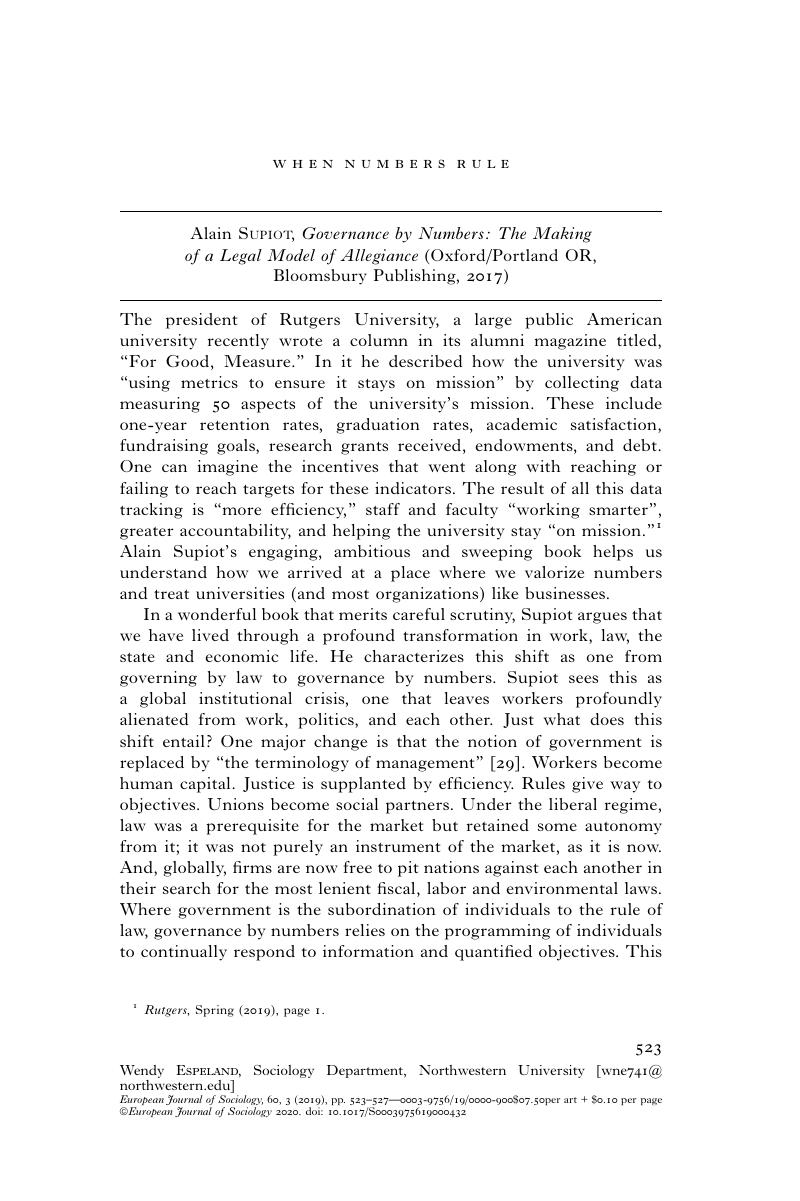No CrossRef data available.
Published online by Cambridge University Press: 14 February 2020

1 Rutgers, Spring (2019), page 1.
2 R. Heeks, 2017. “Decent work and the digital gig economy: a developing country perspective on employment impacts and standards in online outsourcing, crowdwork, etc.” Development Informatics Working Paper no 7 (Manchester: global development institute SEED, University of Manchester) [http://hummedia.manchester.ac.uk/institutes/gdi/publications/workingpapers/di/di_wp71.pdf].
3 G. Valenduc and P. Vendramin, 2016. “Work in the digital economy: sorting the old from the new”, Working Paper (Google Scholar).
4 Alex J. Mark Graham Wood, Vili Lehdonvirta and Isis Hjorth, 2019. “Good Gig, Bad Gig: autonomy and algorithmic control in the global gig economy”, Work, Employment and Society, 33 (1): 56-75.
5 Wendy Espeland and Michael Sauder, 2016. Engines of Anxiety: academic rankings, reputations and accountability (New York, Russell Sage Press).